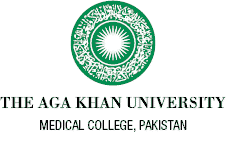Duration: 2 years
Outline of Training in First Year:
Year 1 will be an intensive clinical year with infectious disease consultations on inpatients, primary care for infectious disease admissions, ambulatory infectious disease consultations in clinics with 5 different faculty members, academic sessions within the section, microbiology bench exposure time of 3 months (half days). Fellows will be involved in infection control activities related to department of paediatrics on a regular basis and complete one month rotation in the infection control. They will attend committee meetings pertaining to infectious disease in the university; they will be responsible for primary immune deficiency patients, HIV and TB patient care, surveillance and formal reporting to national programmes (PTP, NACP) through AKU. He/she will also participate in clnical audits/case report/ case series manuscript writing.
Academic sessions will include monthly fellow-driven clinico-pathological conference (CPC), clinical case conference , journal club/scan, guideline discussion and difficult cases for conferral.
Outline of Training in Second Year
Year 2 will involve a higher level of independence in diagnosis and management of infectious disease in outpatient and inpatient clinical service. The fellow will also have to demonstrate a greater competence in research methods through designing an original independent research project which should lead to a manuscript for publication. Each graduating fellow must have at least one paper accepted for publication by time of graduation which has been designed and conducted during two years of fellowship. External rotations will include one month each at SIUT (transplant medicine), The Indus Hospital (Karachi cancer hospital, Adult HIV/ID clinics), Adult ID (AKU), ± Shaukat Khanum Hospital (cancer patients) Lahore for an external variety of patient exposure. The fellow will rotate through dermatology and ENT clinics for weeks each for ID specific exposure and a month of rotation in radiology at AKU.


